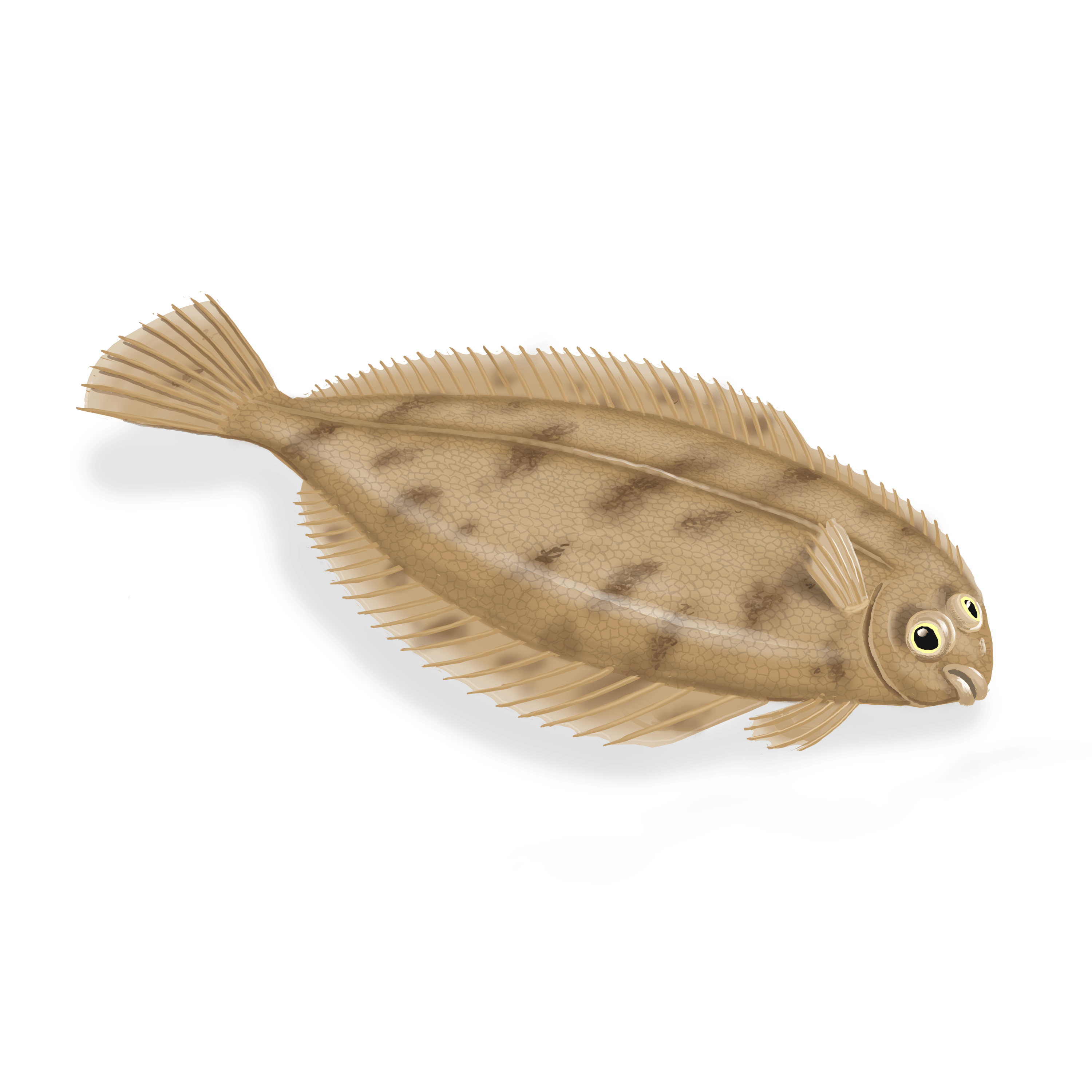SIZE :
Up to 78 cm for 5 kg.
LIFE EXPECTANCY :
Up to 30 years.
LIFE CYCLE :
Late sexual maturity.
Spawning generally takes place between March and September. The transparent, spherical eggs float with the currents. Incubation takes approximately 7 or 8 days. The larvae can remain in the water column for up to a year. When the small fish reach a size of 40 mm to 50 mm, the location change of the eyes occurs.
